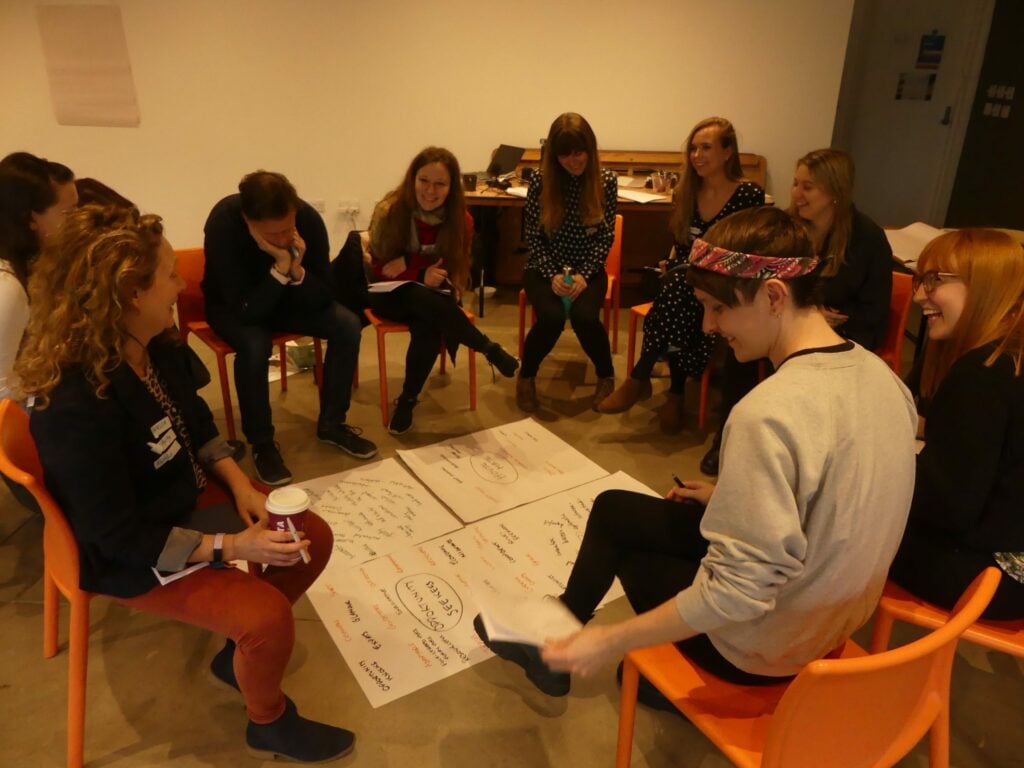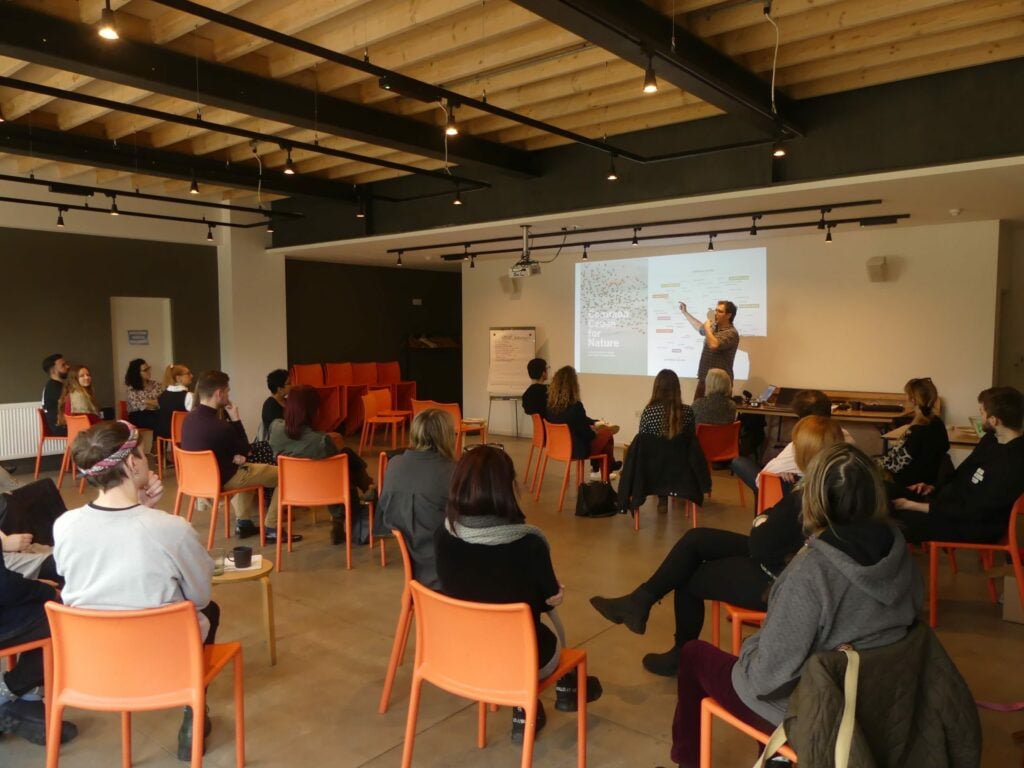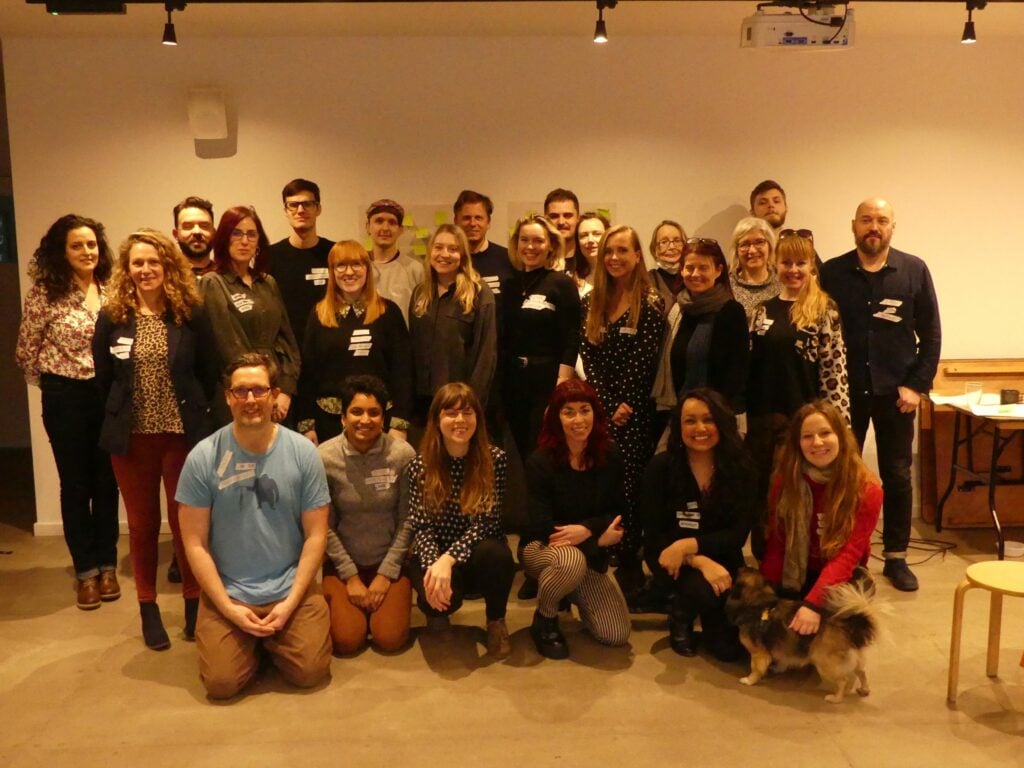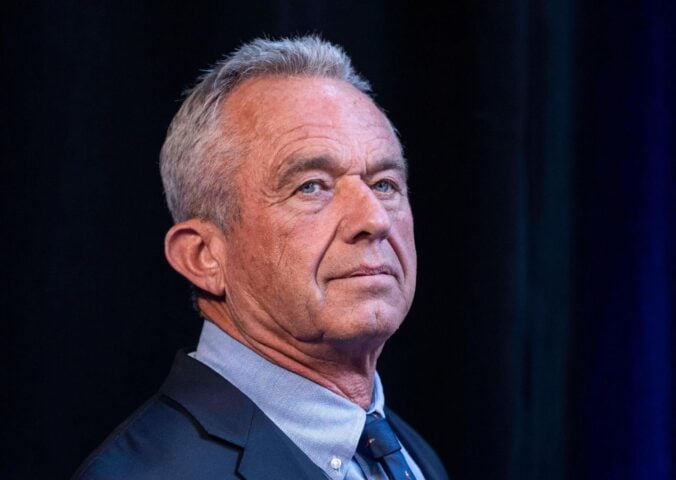Ask what stories mean to someone and they might think about their favorite book, play, film, or TV show. But stories aren’t just a way to escape our reality; they are our reality.
They’re the social media posts we scroll over, the back of the cereal box we absentmindedly read, the advertising we walk past, the sports games we watch, the conversations we overhear, the brand of clothes we wear, our workplace’s mission, the inner voice in our head.
Stories are everywhere, and they shape how we understand the world, how we understand each other, and how we understand ourselves.
They’re hardwired into us from when our ancestors sat around the campfire, telling each other stories not merely for entertainment but to share knowledge.
It’s why children will understand and remember the moral behind stories like The Boy Who Cried Wolf more than the parental command: “Don’t tell lies”.
Stories give our lives meaning
Stories help us anticipate what might happen next, and in turn, help us navigate the world around us. There’s a growing consensus among scientists that the brain is essentially a prediction-making machine. Without our storytelling brains, sports games couldn’t even exist.
Stories guide our lives and give them meaning. But the power of narrative is often used as a way to divide and control us.
It’s because of stories that countries go to war, corrupt politicians get elected into office, and billionaires keep getting richer from the ‘must-have’ products they market to us. As the well-known Native American proverb says: Those who tell the stories rule the world.
The power of storytelling
We are surrounded by stories that normalize injustice and violence in order to benefit the few. It is because of such dominant narratives – of human supremacy; of fellow animals being ‘other’ and ‘non’ and ‘less than’; of their exploitation being ‘normal’, ‘natural’, ‘necessary’ and even ‘nice’ – that we live in a world where the killing of individuals in their trillions is seen as morally neutral.
Toxic narratives of superiority and otherness underpin all oppressions, whether it’s speciesism, racism, sexism, heterosexism, or ableism.
These narratives continue to persist because they are intertwined and mutually reinforcing. Yet there is cause for hope. While stories got us into this mess, stories can help lead us out of it, too.
Because we make sense of the world best through stories, they create empathy in a way that facts and politics can’t.
They can help us identify with those who don’t automatically fall within our ‘in-group’, pulling back the curtain on whole communities who are often invisibilized or otherized by showing the world through their eyes.

Popular culture
The anti-slavery novel Uncle Tom’s Cabin, which was the first major US book to feature a Black protagonist, had a profound effect on attitudes towards African Americans and is often cited as the catalyst for the American Civil War.
Even Harry Potter has been shown to reduce children’s prejudice towards stigmatised groups.
Despite societies being indoctrinated by harmful, oppressive myths for centuries, even millennia, these are steadily being challenged and overshadowed by healthier narratives rooted in unity, love and freedom.
As social changers, one of the questions we need to ask ourselves is: what are the narratives that could drastically shift public perception around fellow animals and show that Animal Freedom is an issue that affects all of us?
Narrative is one of our main workstreams at Animal Think Tank, where we’re exploring which messages, stories, and narratives can connect most with others and cut across the political noise, and in turn help create lasting social and legal change for fellow animals in UK society.
It will be an extensive research project across a number of years, but what continues to inspire and motivate us is seeing how narrative change in other movements has resulted in huge leaps forward in social change.

Freedom to marry
On 26 June 2015, American history was made. The US supreme court ruled in favour of marriage equality across all 50 US states. Finally, same-sex couples had the freedom to marry. But how did this momentous change happen in a country as conservative and religious as America?
A huge driver of the movement’s victory was in changing their narrative. After a decade of pushbacks in the courts and lackluster polling, the movement realized that the public didn’t understand that same-sex couples wanted to get married for the very same reason all couples do: love.
It was then campaigners realized that they needed to shift away from their current narrative around ‘rights’ and ‘justice’ to a narrative rooted in the heart-held values of ‘love’ and ‘freedom’.
And so the Freedom to Marry campaign was born in 2003, telling positive and moving stories of conservative fathers wanting to walk their lesbian daughter down the aisle, of religious parents wanting their gay son to marry the love of his life, of children wanting their parents to be able to celebrate their love.
These stories forged the in-roads to making marriage equality relevant to voters, taking what was once deemed a side issue and reframing it to show how it affected wider society.
Within just six months of launching the new narrative, the campaign achieved its first historic win: Massachusetts became the first state to rule in favor of the freedom to marry.
With the precedent set, it took just 12 years for the remaining 49 states to follow suit.
Shifting the narrative
Just like the tide turned for marriage equality when the movement stopped talking ‘rights’ and started talking ‘love’, the immigrant rights movement made substantial headway when they too shifted away from ‘rights’ and centered their narrative around ‘family’ and ‘freedom’, platforming the first-hand experiences of undocumented storytellers.
A similar narrative shift happened in the pro-choice movement in Ireland, which used the positive, inclusive framing of ‘Together for Yes’ to repeal the eighth amendment, and moved away from ‘rights’ and ‘choice’ to one of ‘care’ and ‘compassion’.
The MeToo movement flipped the narrative around male sexual violence through women reclaiming it, telling their stories in their own words, and framing themselves as survivors united in solidarity, not isolated victims who had stories told about them.
Social change
Looking further back, changing the narrative has helped usher in social change for countless historic movements.
Part of the success of the abolition of the slave trade was not just stories like Uncle Tom’s Cabin, written by white abolitionists, but first-person stories of freed slaves (such as The Interesting Narrative of the Life of Olaudah Equiano).
These stories allowed others to see the world through former slaves’ eyes, evoking empathy for fellow people, rather than pity for ‘slaves’, helping to break down the us/them barrier.
Martin Luther King understood the power of storytelling more than most, and it was his iconic I Have a Dream speech that reframed the dominant narrative of the American Dream, widening who was considered worthy of being ‘American dreamers’.
His speech crafted a story of a different tomorrow, and his vision was so vivid and urgent in its depiction, it made others yearn for this fictional future over their current reality.
Building a network of strategic storytellers
Other social justice movements show us not only that narrative matters but that movement collaboration matters. It is when a diversity of voices unify behind a shared narrative that it can begin to have traction.
To create an inclusive society that respects everyone, we need an inclusive approach to our narrative strategy. We don’t believe one organization can come up with all the answers.
That’s why, alongside our narrative research, ideation, and testing, we’re collaborating with other creative thinkers and communicators across the movement to explore how, collectively, we can accelerate narrative change for Animal Freedom.

In February 2022, 27 of us (from faith groups to grassroots groups, to NGOs, to design agencies, to media, to think tanks) gathered in one space to discuss how we could more positively frame fellow animals in our discourse.
We explored how language and images convey meaning, and how the way in which we communicate affects how others think, feel and act.
While this first workshop only scratched the surface of the deep work involved in narrative change, this and future collaborations will help inform the messages, stories, and narratives to be developed and tested.
Just as crucially, it has laid the foundations for building a network of communicators to bring in the very best ideas and insights from across the movement, empowering all of us to be more effective storytellers for Animal Freedom.
If this sounds like something you or your organization are interested in being part of, or just want to learn more about narrative change for social change, we want to hear from you.
From Jaws to My Octopus Teacher
When thinking about how we can add to the narrative landscape around fellow animals, it’s useful to reflect back on how previous stories have already informed the wider narrative.
For all the damage that the likes of Moby-Dick and Jaws inflicted on our aquatic cousins by otherizing and demonizing them (which the author of Jaws now deeply regrets), there have been countless other stories that have challenged this stereotype.
Such as the recent Oscar-winning My Octopus Teacher, which centered a female octopus and showed her unique personality, curiosity, and ingenuity. (We’ll need many more stories like this to help challenge plans for commercial-scale farming of octopuses.)
Or, going further back, National Geographic’s 1979 album of whale songs, distributed to all of its 10.5 million subscribers (which still remains the biggest single pressing in recording history).
This dramatically reframed whales so they were no longer seen as ‘monsters of the deep’, but as beautiful, musical, cultured beings who inspired awe and reverence in us, not terror. This seemingly small shift in narrative saw a huge rise in public support for banning the hunting of whales.
There are countless other stories that show fellow animals as the diverse individuals they are, from the cinematic beauty of Gunda, to the heart-breaking realism of Green, to the cute-ified animation of Bambi (whose mother’s killing, by a hunter known only as ‘Man’, also increased public anti-hunting morality).
And there are, of course, the many stories and narratives we bring as a movement. We shine a light on the dark industry secrets, we show fellow animals’ resisting their oppression, and we offer hope by showing survivors living free or in sanctuary.
As a movement, we continue to change the narrative around veganism, steadily bringing it into the mainstream by reframing what is normal, natural, necessary, and nice.
Yet while veganism and plant-based eating continue to increase in popularity, the number of fellow animals being killed also continues to rise.
And while we win occasional policy battles, these wins are always under attack and in danger of being reversed (or completely ignored, as with the UK ‘ban’ on hunting foxes).
We want to discover if other narratives can bring us closer to Animal Freedom by shifting away from ‘welfare’, ‘rights’ and ‘veganism’ to more universal values, like ‘freedom’, ‘love’, and ‘community’.
After all, it is values like family and love that the animal exploitation industry knows to draw upon when selling products that are the very antithesis of this.
How do we change the narrative?
While a story can be told, a narrative has to be understood and felt. Narratives are the deep, often invisible, ideologies that stories and messages stem from. They exist as an interconnected system of stories that reinforce the underlying ideology.
Part of our work as communicators is revealing how the dominant narratives that are currently seen as ‘common sense’ are in fact just myths that we have been force-fed for centuries.
But narrative change is not just about challenging and dismantling the toxic narratives that surround us; it is about offering a vision of a better future for everyone. At their core, that’s what popular narratives are.
Whether it’s the spin of oppressive narratives like Make America Great Again and the American Dream, or the hopeful narratives of Gandhi’s Beloved Community, King’s dream, same-sex couples’ Freedom to Marry, a future where Black Lives Matter, or people coming Together For Yes, all narratives are about inspiring hope for the future.
With crisis comes opportunity
The old narrative – of individualism, competition, extraction and ‘progress’ – has failed us. It’s been fractured by the pandemic, the climate crisis and increasing inequality. Right now, we are in between narratives. We’re living in a time where new narratives can begin to take root in the void.
We are at a crucial point in our history when the stories we tell matter now more than ever. People are primed for a different, more hopeful story – one of love, connection, cooperation and unity.
While narrative is only part of the social change work that is needed, it’s a vital part. It isn’t a magic pill that will quickly topple speciesism or any other oppression; it’s a process – one that will most likely take decades.
It needs all of us to discover the narratives that will most move society towards Animal Freedom. It needs all of us to show that a different future is not only possible, it is essential.
And it needs all of us to keep our vision of the future in circulation, reinforcing it through countless different stories and via countless different messengers, until that vision becomes reality.
Those who tell the stories rule the world – that is the power of storytelling. And it’s time the story represented all of us.
If you’re interested in learning more about narrative change for Animal Freedom, want to be a part of a growing network of communicators focused on this work, or would like to volunteer with Animal Think Tank, we’d love to hear from you.






